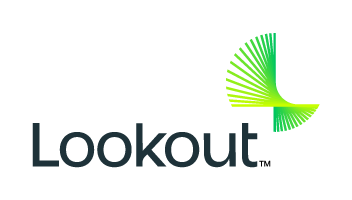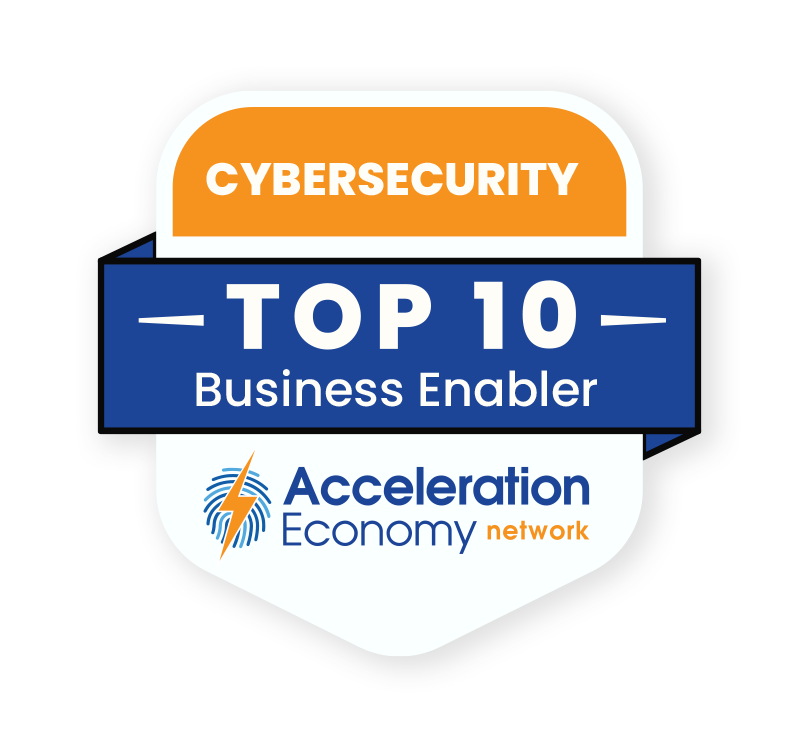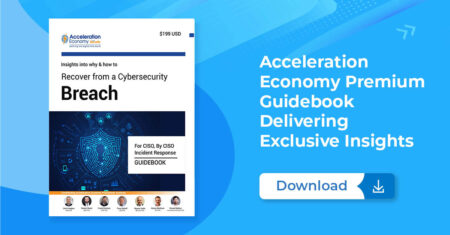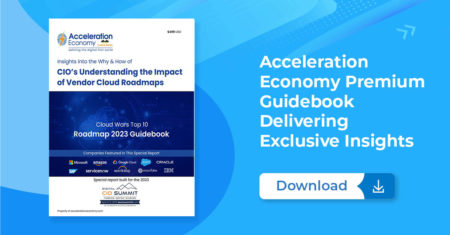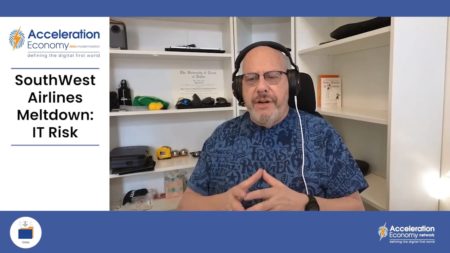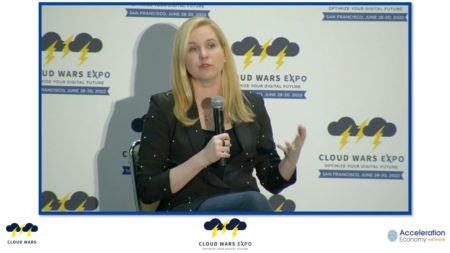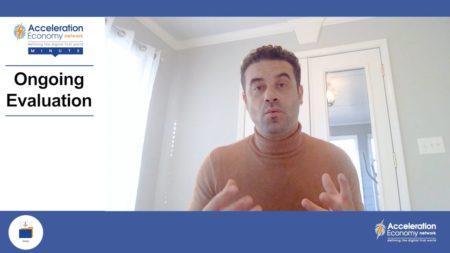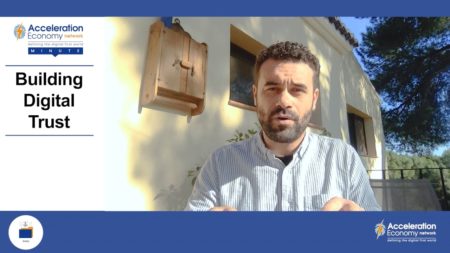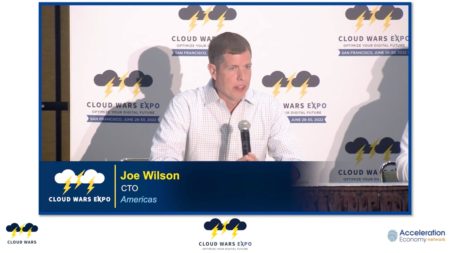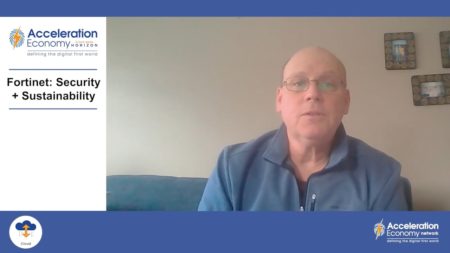Do you know how to respond after a security breach has happened? This “for CISO, by CISO” guidebook provides first-person actionable insights from practitioners.
Wayne Sadin continues his discussion on the recent Southwest Airline meltdown and how it demonstrates the perils of ignoring regular maintenance of a company’s systems.
Frank Domizio explains how a modern CISO can communicate security needs and strategies to top leaders, peers, and their cybersecurity teams.
This guidebook is your 2023 Cloud Wars Top 10 Roadmap on Microsoft, Amazon, Google Cloud, Salesforce, Oracle, SAP, ServiceNow, Workday, Snowflake, & IBM
Drawing upon his experiences in the C-suite buying and selling technology, Tony Uphoff explains the value, for leaders, of staying on top of the cutting edge.
In episode 41, Wayne Sadin uses the airline’s recent flight cancellation crisis to demonstrate the need to look at all of your IT risks, not just one of them.
In this Cloud Wars Expo Industry Cloud Battleground Moment, Carrie Tharp explains how Google Cloud emphasizes security and privacy in the hospitality industry.
In episode 30 of the Acceleration Economy Minute, Kieron Allen discusses why ongoing evaluations of technology are so important.
Tools are a core part of cybersecurity, but too many can lead to bloat. CISO Analyst Robert Woods explains how to ensure portfolios are up to date and supporting a sustainable work environment.
Artificial intelligence is now a front-line tool in combating cyber threats and delivering data-driven insights. AI expert and Acceleration Economy Practitioner Analyst, Ronak Mathur explores the capabilities of AI to bolster cybersecurity measures.
In ep. 29, Kieron Allen explains why a digital trust strategy is essential for brands and describes how a company can successfully implement one.
Analyst Robert Wood shares the three areas CISOs should focus on to improve their performance: data, supply chain risk, and team cultures.
What is Acceleration Economy’s CIO Summit? Listen in as Cloud Wars Founder Bob Evans, Chief Analyst Tony Uphoff, & Co-Founder John Siefert share what it is, what it isn’t, and what to expect
CISO practitioner analyst Chris Hughes emphasizes why today’s CISOs need to prioritize their agenda to quantify risk, embrace zero trust, and fight talent burnout
In this Cloud Wars Expo Industry Cloud Battleground moment, Workday Americas CTO Joe Wilson explains the unparalleled ways that the cloud provider meets the security needs of its customers.
The capabilities of Snyk for automatic discovery & remediation have positioned it to shift security left. However, vendor solutions only go so far.
In ep. 26 of the Acceleration Economy Minute, Kieron Allen explains how broad spectrum automation is a cost-efficient investment for organizations looking to automate more processes.
A sustainable future is not out of reach but depends on how we continue efforts to build resilient cybersecurity frameworks which support the critical infrastructures, IoT, and open-source solutions we all depend on.
Fortinet has staked out sustainability leadership through board-level focus, carbon neutrality pledge, and zeroing in on the cybersecurity skills gap.
In ep 29 of the Growth Swarm podcast, the hosts discuss recent key trends and look ahead to how the “four pillars” will help businesses thrive in the future.


